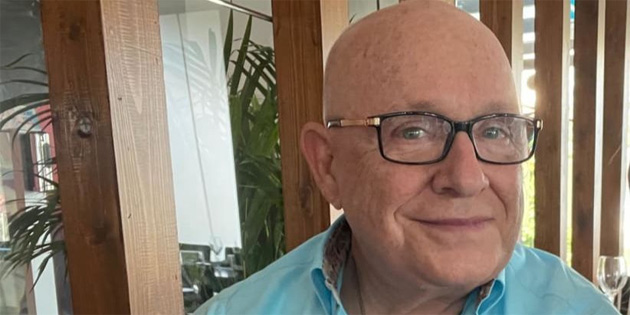Israeli property developer Simon Aykut on Monday pled guilty to a total of 40 of the charges he faces related to the development and sale of Greek Cypriot property in the north, while the remaining 202 were withdrawn.
The plea was entered after a deal between the prosecution and the defence.
Of the initial 242 charges he faced, 60 are related to “fraudulent real estate transactions”, 60 to being in possession of stolen land, 62 to money laundering, and 60 to conspiracy to commit a crime.
He will be sentenced on October 24.
During the hearing, prosecution lawyer Andreas Aristides told the court that “the case is unfolding in the context of the ongoing Turkish occupation of Cyprus, a consequence of the military invasion of July 1974, which led to the violent displacement of over 160,000 Greek Cypriots.
“The invasion was accompanied by a massive encroachment on, looting, and usurpation of property, with the creation of faits accomplis which violate both Cypriot and international law,” he said.
Speak about Aykut himself, he said the accused is “a holder of Israeli, Portuguese and Turkish citizenship” and “was active in the occupied territories in the field of land development and real estate construction without having secured the consent of the legal Greek Cypriot owners”.
He said Aykut’s company, the Afik Group, “developed a series of tourist and residential projects which it offered for sale to an international audience”.
He said Aykut, through the Afik group, “participated in the construction and commercial exploitation of six large tourist complexes in areas such as Ayios Amvrosios, Trikomo, Gastria and Akanthou, on plots of land belonging to displaced Greek Cypriots”.
“No consent was given by the legal owners for any use of their properties,” he said, before going on to name the complexes as the Caesar Cliff, the Caesar Resort, the Caesar Beach, the Caesar Blue, the Caesar Breeze and the Caesar Bay.
These complexes, he added, cover 394,969 square metres of land, with a corresponding market value of just over €36 million.
Aykut’s lawyer, Maria Neophytou, asked the court for leniency, saying that her client had “acted after being urged by his son, in whom he had complete trust”.
She said Aykut’s role was “limited to formal administrative duties”, and that he “did not participate in the planning or execution” of the property development.
“A father’s love for his son cannot be transformed into a criminally punishable intent. The defendant was not the mastermind, nor did he have any motive for personal enrichment,” she said.

She also made reference to Aykut’s health, saying he is “in the last third of his life” and that he “faces serious health problems”.
Additionally, she pointed out that prior to his arrest at the Dherynia crossing point last year, he had had a clean criminal record, and cited his “admission of guilt and sincere remorse”.
“Simon Aykut is not seeking acquittal, but fair and humane treatment, so that he can spend his last years with dignity, next to his family,” she said.
At the beginning of last month, Aykut’s son Yaacov Afik released a statement to mark 500 days since his father was arrested, criticising the Republic of Cyprus for the way he has been treated.
He compared the case being faced by his father to that being faced by the five Greek Cypriots who were arrested in the north, and said that “while political and diplomatic campaigns are being carried out for the Greek Cypriots, silence prevails for 75-year-old cancer patient Simon, who has been imprisoned in the south for 500 days”.
He added that he applied to the European Court of Human Rights over his father’s case six months ago, but that the case is “still pending”.






Click here to change your cookie preferences